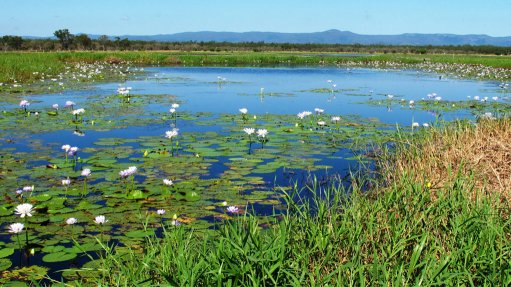
Photo by: Rhode Island Property gallery
This year wetlands will take centre stage as government, together with other stakeholders, demonstrate the vital role of wetlands for the future of humanity says the Eastern Cape Department of Economic Development, Environmental Affairs and Tourism.
Departmental official Mrs Pumla Geja-Mzazi was talking to the Ugie community as she launched provincial World Wetlands Day in Ugie today.
Ugie is just kilometres away to the Gatberg Wetlands, one of the many protected wetlands in the province.
In her address, Geja-Mzazi explained that the country’s wetlands are key to achieving the new sustainable development goals.
“It is imperative that government and our communities are increasingly vigilant about protecting these pockets of Eden. Time is running out for these areas according to the 2013 State of Wetlands in South Africa report, which estimated that development and poor land management have already destroyed over 50% of our freshwater wetlands.
“The continued destruction of our wetlands will result in the disappearance of these priceless wetland functions and values,” she explained.
Some of the challenges facing many of South Africa’s wetlands include poor agricultural practices prior to afforestation, including overgrazing and indiscriminate burning of grasslands, soil erosion and drainage of wetlands for extended periods.
In an area which has a successful forestry track record, Ugie has also seen the effect on its wetlands by early plantation forestry practices which dried up small streams, allowed uncontrolled alien invasive species to dominate wetland habitats and promoted annual burning of riparian areas for fire protection.
However, commercial forestry plantation practices have improved substantially over the last two decades.
Geja-Mzazi reiterated that the Department would not allow future development to negatively affect the province’s sensitive and priority biodiversity areas such as the wetlands.
“Sustainability of our natural resources and improving the lives of our people requires a delicate balance. Our resources need be sustainably used and conserved for future generations. But we also need to continue to improve the lives of our people, through rural development, poverty alleviation and service delivery,” she added.
The Department reported that the province’s biodiversity such as the scenic attractions of the wetlands contributed significantly to rural livelihoods. For example, in 2013, it generated R144.4 million for the province.”
She added that the province also depended on nature, particularly forests, to absorb the carbon dioxide that its citizens generated, and to regulate the climate.
This year, the Department is reviewing the province’s biodiversity masterplan, the Eastern Cape Biodiversity Conservation Plan (ECBCP) addresses will identify and map out critical biodiversity areas and priorities for conservation in the province.
The Department says that the plan helps to guide the processes of managing the balance between the province’s rich diversity and scenic beauty, and the unprecedented pressures of development like unplanned development, and urban and agricultural expansion.
Issued by Eastern Cape Department of Economic Development, Environmental Affairs and Tourism